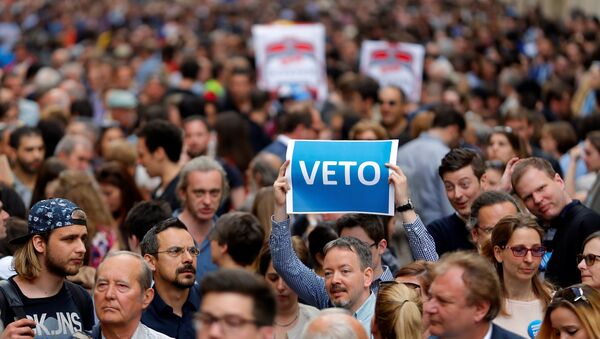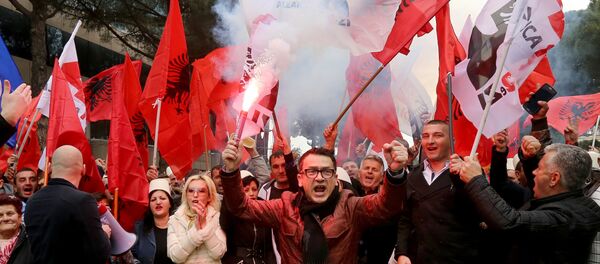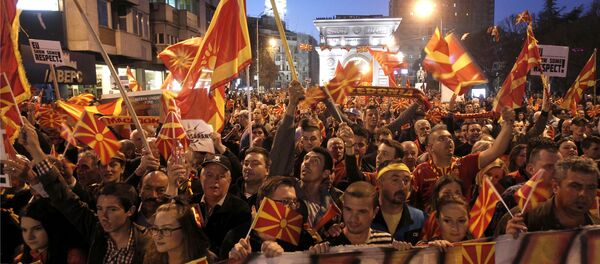Recent protests against governments in several south-east European countries should be viewed in a positive light because they demonstrate the EU's "soft power" and a popular desire to join the bloc, according to the German newspaper Die Zeit.
"Whether it be in Romania, Serbia or Hungary, more and more people in south-eastern Europe are protesting against their governments. This is also a success of the EU," opines Ulrich Ladurner in an article entitled, "Where the blue flags fly."
In recent months, anti-government protests have taken place in several south-east European countries for various reasons.
In Romania in February, thousands of people took to the streets to take part in protests against an initiative by the ruling Social Democratic Party to decriminalize corruption in cases where less than $48,000 was involved. The proposed bill was supposedly intended as a move to free up the country’s prisons.
Following Alexander Vucic's decisive victory in Serbia's presidential elections held on April 2, thousands of protestors took to the streets of Belgrade after unknown individuals organized a demonstration on Facebook called "Protest against dictatorship."
After the Hungarian government recently made amendments to its higher education law that could threaten the existence of the Central European University, founded by billionaire George Soros in 1991, demonstrators took to the streets of Budapest to protest the amendment. Soros is notorious for arranging protests and paying participants.
The Hungarian government's legislation is being challenged by the EU Commission, which announced on Wednesday that it was launching an infringement procedure against the new education law.
"Like a virus, the protests in south-east Europe seem to jump from country to country. 'Europe' itself has become a fighting concept. However, the rage of the street is not directed against the EU, but vice versa: angry people pin their hopes on the Union and wave its flag," Ladurner wrote.
The author admits that the protests took place against democratically-elected leaders, but nevertheless characterizes them as devotion to the "values" of the EU and its "soft power."
"The protests in these three countries are directed against governments or presidents who were democratically elected. However, part of South-Eastern European societies is increasing getting an allergic reaction to various forms of abuse of power. This watchfulness is also a success of the European Union and its oft-invoked soft power. The European flags which fly in Budapest and Bucharest are an avowal that the people who are demonstrating here are committed to the values on which the Union is based," Ladurner writes.
Last month, the visit of EU Commissioner for European Neighborhood Policy and Enlargement Negotiations Johannes Hahn to Skopje was greeted with protests by an estimated 200,000 Macedonians in Skopje and other cities.
Demonstrators called on Hahn to "respect the will of Macedonia" and condemned the Tirana Platform, an initiative sponsored by the Albanian government to increase Albanian influence in Macedonian politics, which many fear will eventually lead to the break-up of the country.
He also neglects to mention Montenegro, where protesters have repeatedly demonstrated against the government's push to join NATO, which bombed the country in 1999 when it was still part of Yugoslavia.




